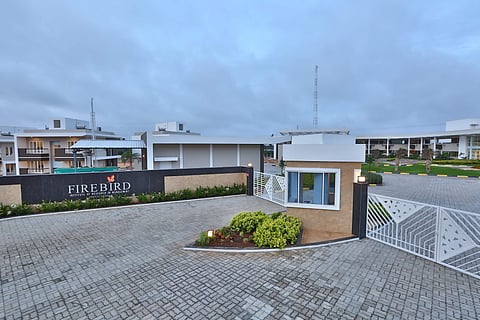

Amongst the many B-Schools dotting the state, Firebird Institute of Research in Management offers you a whole lot more. The residential campus located in Chettipalayam, Coimbatore offers an industrial exposure from day one. The students are also given 40 hours training in a Business English Certificate course. We asked Dr S K Sundararaman, Managing Trustee, why they stood out and here's what he had to say. Excerpts:
What makes your institute stand out when compared to other B-Schools?
At premier B-Schools like IITs and IIMs you have absolutely top class candidates who are very intelligent, who have work experience and who are being groomed for careers in large MNCs. The process of preparing those people is significantly different from the way a non-metro city student should be prepared for a non-MNC company in India. As a person looking at the industry and academia for the last 20 years and sitting on both sides of the table, the interaction has always been fractured. Industry wants to make it more practical and academia wants to make it more academic. That's where the gap is. So we said we will create a structure based on our own knowledge, as people who are running large institutions and companies. At least 40% of our training programme has to be hands-on — there is no point in talking about marketing sitting in a classroom. This is the value proposition we brought into Firebird. And hand-in-hand we brought a strong and straight focus on executive education. Executive education doesn't exist in this country except offered by a few top schools but they are offered as a very supplementary programme.
The first batch of Firebird graduated recently, which are the prominent companies which came for the placements?
We have both International and domestic placements. One of our students is placed in ASPA consultancy, UAE. Other prominent companies who hired our students are GSK, CavinKare, IndusInd Bank and so on.
We've heard that your placement programme is a bit different
We have a mid-programme internship for about 3 months at the end of the second semester. We take this very seriously. We place the students in the areas of their choice. And that is the start of the placement process. We say that if the internships are done properly, and if somebody has seen you for three months then they should be in a position to give you a job. In our system, the predominant passing and failing of the internships are in the hands of the company.
The IIP is heavily talked about. Tell us more
For 15 days every semester the students goes to the industries and gets first-hand information about the industry and relates that to the academics that is being taught. For the first semester, we send them without any module so that they understand about the industry. We just send them to understand what an industry is. In the second semester, we make them understand which vertical they would like to spend their second year. This will help them be very clear about which specialisation they require. In the third semester, we put them through a social immersion programme, that sensitises them about society.
Is there any student exchange programme?
At this point of time, no. We don't see any academic input from a student exchange programme. In terms of exposure to an international environment is provided by our internship programmes. For us, the work experience component is more important. To get that international exposure, international faculty teach here. We have a full-time faculty member from France who was earlier with IIM Trichy.
Are you planning to introduce any new course in a few years?
Our focus is on making our PGDM programme strong and unique. We would be introducing certain specialisation certification courses. Like in Fintech and other areas where there is a lot of interest now. We give those kinds of courses to our full-time PGDM students and we are also planning to offer executive education programmes. We want to offer the ones in current trends.
Can you please elaborate on the bridge course programme
The entry level for a B-school is any degree. So the students come from various background like engineering, arts and science and so on. For example, students who are coming from the engineering background do not have exposure to accounting. Students who are coming from arts and science will not be very strong in quantitative techniques. So we give them a bridge course for all these things. It is a credit-based course and the students have to clear this programme.
Why do tier II students have a much better aptitude towards management as opposed to students from metros?
As a person who hires 15 to 20 people a year, the most important aspect we look for in an entry-level candidate is attitude and nothing else. It is attitude which comes first and integrity and values that come next. If these two things are there, then you can teach them business processes, we also look at the ability to adapt to change so their IQ should also be good enough. Ideally, people from tier II cities who are brought up from traditional systems seem to have a higher urge to work hard and have better integrity. The problem with people in metros is that people will think about short term gains rather than long term careers. For example, if you are in an organisation for 10 years, you understand how much that organisation also values you. So we inculcate those values into the students in addition to anything.
